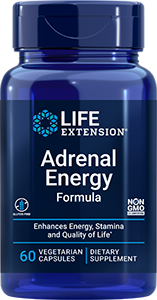
Newsletter
Newsletter
Probiotics Help Prevent Antibiotic Associated Diarrhea
Probiotics help prevent antibiotic-associated diarrhea
Tuesday, May 15, 2012. A review and meta-analysis reported in the May 9, 2012 issue of the Journal of the American Medical Association found a protective effect for orally-administered probiotics against diarrhea that often develops as a response to antibiotic drugs. While antibiotics destroy harmful as well as beneficial bacteria, probiotics consist of beneficial live microorganisms whose presence in the digestive tract can help prevent the overgrowth of unhealthy organisms. Susanne Hempel, PhD, of the research organization RAND Health in Santa Monica, California and her colleagues reviewed 82 randomized clinical trials of patients receiving antibiotics that compared the effects of a probiotic to no treatment, a placebo, or a different probiotic or probiotic dose. A pooled analysis of 63 of the trials, which included a total of 11,811 participants, concluded that the use of probiotics was associated with a 42 percent lower risk of developing diarrhea as a result of antibiotic use compared to not consuming probiotics. Because many types and blends of probiotics were used in the studies, it was difficult to identify which strains were responsible for the benefits observed, however, pooled analyses limited to trials of Lactobacillus, Saccharomyces and Streptococcus probiotics were associated with risk reductions of 36%, 52% and 49%, respectively. "We found a clear beneficial effect of probiotics in preventing or treating antibiotic-associated diarrhea," stated study coauthor Sydne J. Newberry, who is a nutritional scientist and a researcher at RAND. "However, more work is needed to determine which types of probiotics work best, which patients are most likely to benefit from probiotics and whether there are any risks in using them." "The pooled evidence suggests that probiotics are associated with a reduction in antibiotic-associated diarrhea," the authors conclude. "More research is needed to determine which probiotics are associated with the greatest efficacy and for which patients receiving which specific antibiotics." | ||||||||||||||||||||||||||||||||||||||||
 | ||||||||||||||||||||||||||||||||||||||||
| ||||||||||||||||||||||||||||||||||||||||
 | ||||||||||||||||||||||||||||||||||||||||
| ||||||||||||||||||||||||||||||||||||||||
| ||||||||||||||||||||||||||||||||||||||||
The latest news on aging, nutrition, and vitamins
Lab
Testing
How Life Extension lab testing works











